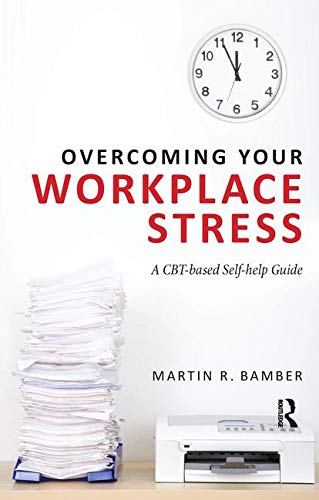What is burnout?
Burnout involves feelings of exhaustion, cynicism and reduced professional effectiveness when experiencing stress over a long period of time. Burnout can occur in both the work and study environments. Feelings of exhaustion can present as feelings of weariness, being emotionally drained, or feeling ‘used up’ at the end or a work day or week. Burnout can also involve feelings of cynicism about work or study such as doubting the usefulness of one’s profession or study. Feelings of detachment from clients can also be present in client centred jobs. These may present as feeling less concerned about clients or interacting with clients in a less compassionate manner. Additionally, burnout can result in feeling less effective as a worker or student. This might involve decreases in feelings of confidence and capability in work and study. These feelings can be very scary, especially when work has previously been an enjoyable and important part of one’s life.
When does burnout occur?
Burnout often develops when there are more demands present in work or study than there are resources available to cope with them. Demands can include the pressure of a large work load, deadlines, or the pressure to perform as a competent professional or student. Organisational demands or stressors might be related to work politics, ineffective management, or ineffective systems. Additionally, in human services professions such as teaching, health professions, or legal work there may be additional emotional demands. These might include the emotional demands of caring for physically or mentally ill clients or the emotional burden of not being able to help people as much as is desired. Dealing with death and mortality or hearing clients’ experiences of trauma are additional emotional demands which can cause much distress.
How to prevent or reduce burnout: The importance of resources
To reduce or prevent burnout having the right resources on hand is very important. Resources can be related to the workplace and organisation or can be personal. Often people can cope with a high level of demands and even thrive and enjoy their work if there are appropriate resources that accompany the demands. A workplace or study environment high in resources might include frequent supervision that the worker/student feels is useful. Experiencing variety in work or having some control over the work environment or work load are other important organisational resources. If a workplace or study environment is low on resources personal resources become more important. Personal resources are resources that an individual possesses that aid them in coping with demands. A personal resource may be an overall sense of optimism or the possession of coping skills that are adaptive and useful in coping with stress and demands. Everyone possesses some personal resources that have helped them cope, however, many people will experience a time in their work or study when they feel that they are not coping as well as they would like to. If this is prolonged burnout may occur.
How a psychologist can help
A psychologist can help reduce or prevent burnout by working with people to increase their personal resources. A psychologist can also work with people to explore the demands that they are facing and help to prioritise or minimise these demands. Research has shown that cognitive and behavioural strategies such as increasing coping skills, practising ‘mindfulness’, and developing psychological flexibility can reduce and prevent burnout. Additionally, a psychologist may be able to help improve work resources by supporting an individual to change their work environment.
If you would like to find out more about our treatment for work or study burnout or to book an appointment with one of our clinical psychologists who provides treatment for this condition, please make an enquiry or call the clinic on 02 9438 2511.


